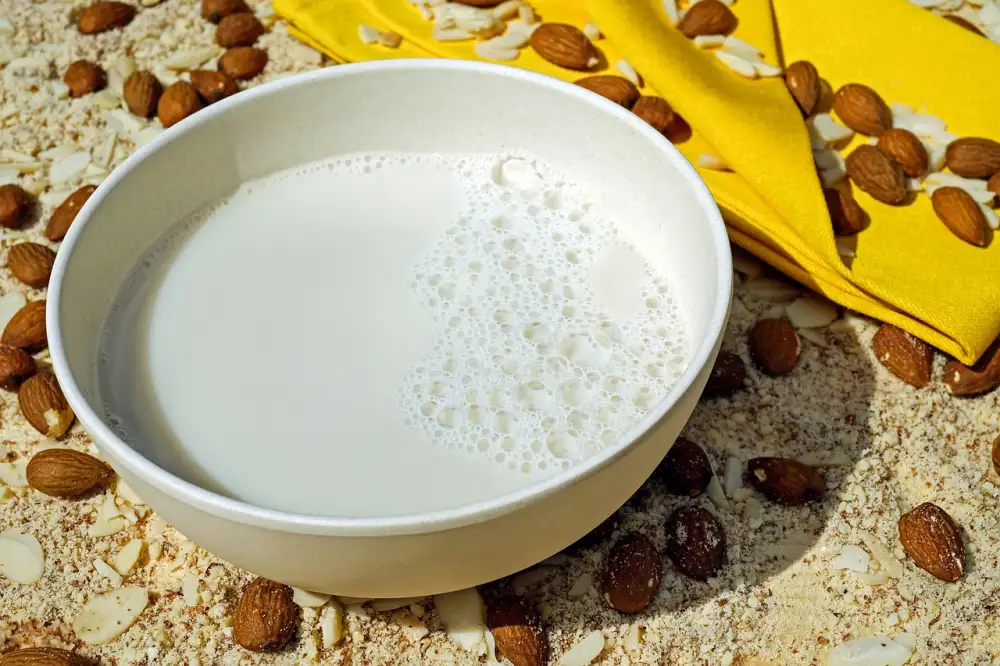Unveiling the Shelf Life Secrets: Does Almond Milk Go Bad? Find out the Telltale Signs of Spoilage

Almond milk has gained popularity in recent years as a dairy-free alternative that is both nutritious and delicious. But like any perishable product, almond milk has a limited shelf life. Understanding how long it can stay fresh and safe to consume is essential for every almond milk enthusiast. In this article, we will delve into the factors that affect the shelf life of almond milk and provide you with valuable tips on proper storage to ensure you enjoy fresh and safe almond milk every time. So let's uncover the secrets behind the shelf life of almond milk!
Understanding the Shelf Life of Almond Milk
Almond milk has gained popularity as a dairy-free alternative, but how long can it actually last? The shelf life of almond milk varies depending on various factors.
Unopened almond milk typically has a longer shelf life compared to opened ones. It can last for about 1-2 weeks past the printed expiration date if stored properly in the refrigerator. However, it is important to note that this is just an estimate and the quality may start to deteriorate over time.
Once opened, almond milk should be consumed within 7-10 days for optimal freshness. This is because once exposed to air, bacteria can start to grow and spoil the milk. It is crucial to check for signs of spoilage before consuming.
To maximize the shelf life of almond milk, it is essential to handle it with care. Always use clean utensils when pouring or scooping out the milk and avoid cross-contamination with other foods. Additionally, keeping it refrigerated at all times will help maintain its freshness.
By understanding the shelf life of almond milk and following proper storage guidelines, you can enjoy this delicious dairy alternative while ensuring its safety and quality.
Factors Affecting the Shelf Life of Almond Milk
Several factors can affect the shelf life of almond milk. One of the main factors is the packaging. Almond milk that comes in aseptic packaging, such as cartons or tetra packs, tends to have a longer shelf life compared to those in bottles or containers.
Another factor is the temperature at which almond milk is stored. It is important to keep almond milk refrigerated at all times to prevent bacterial growth and spoilage. Exposure to heat can accelerate the breakdown of nutrients and cause the milk to spoil faster.
The quality of almonds used in making almond milk also plays a role in its shelf life. Fresh, high-quality almonds produce almond milk that lasts longer compared to those made with lower quality almonds.
Additionally, additives and preservatives can affect the shelf life of almond milk. Some brands may add preservatives to extend the shelf life, while others may opt for natural alternatives like vitamin E or citric acid. It is important to check the label for any added preservatives or additives that may impact the freshness and longevity of almond milk.
By considering these factors, you can ensure that your almond milk stays fresh for as long as possible, allowing you to enjoy its delicious taste and nutritional benefits.
Signs of Spoilage in Almond Milk
While almond milk can have a relatively long shelf life, it is important to be aware of the signs of spoilage. Here are some telltale signs that your almond milk may have gone bad:
1. Foul odor: If your almond milk has a sour or unpleasant smell, it is likely spoiled. Fresh almond milk should have a mild, nutty aroma.
2. Strange texture: Spoiled almond milk may become lumpy or chunky in texture. If you notice any clumps or separation, it's best to discard it.
3. Off taste: Almond milk that tastes off or has a bitter flavor is a clear indication of spoilage. Fresh almond milk should have a slightly sweet and creamy taste.
4. Mold growth: Visible mold growth on the surface of your almond milk is a definite sign of spoilage. It's crucial to discard the entire container if you spot any mold.
5. Curdled appearance: If your almond milk appears curdled or has an unusual consistency, it is likely no longer safe to consume.
It's important to note that these signs may vary depending on the brand and type of almond milk. Always check the expiration date and trust your senses when determining if your almond milk has gone bad.
Proper Storage Tips for Almond Milk
Proper storage is crucial in maintaining the freshness and quality of almond milk. Here are some tips to ensure that your almond milk stays safe for consumption:
1. Refrigeration: Almond milk should always be stored in the refrigerator, even before opening. The cold temperature helps to slow down the growth of bacteria and extend its shelf life.
2. Check the expiration date: Before purchasing almond milk, always check the expiration date on the packaging. Make sure to consume it before this date to avoid any risk of spoilage.
3. Seal tightly: After opening the almond milk, make sure to seal it tightly with its original cap or transfer it to an airtight container. This prevents air from entering and keeps contaminants out.
4. Avoid cross-contamination: To prevent contamination, never use a dirty spoon or cup to scoop out almond milk. Always use clean utensils and pour it into a clean glass or bowl.
5. Keep away from direct sunlight: Almond milk should be stored in a cool and dark place, away from direct sunlight or heat sources. Exposure to light can cause it to spoil faster.
By following these storage tips, you can enjoy fresh and safe almond milk for a longer period of time. Remember, proper storage practices are essential for maintaining its quality and ensuring your health and safety.
In conclusion, understanding the shelf life of almond milk is crucial for enjoying fresh and safe consumption. By being aware of the factors that affect its shelf life and recognizing the signs of spoilage, you can ensure that you are consuming almond milk at its best quality. Remember to always check the expiration date and store it properly in the refrigerator to extend its freshness. By following these tips, you can continue to enjoy the creamy and nutritious goodness of almond milk in your favorite recipes and beverages.
Published: 12. 12. 2023
Category: Health



